Every day, we prepare for the future, either mentally or by taking direct action. We plan our careers, save for retirement, or upgrade our computers so that they can run a game set in the post-apocalyptic world we're hoping to avoid.
However, one new development can change everything — not just how we play, but also how we live and even think, rendering our preparations obsolete and forcing us to adapt to a reality we never saw coming.
Interested in such a scenario, Reddit user AndyTexas invited everyone to speculate and list the possible advancements that, if they came true, would radically redefine humanity. Here are some of the interesting answers they received.
#1
Was just reading about advances in mRNA technology that could potentially reshape cancer treatment. The idea is doctors take a sample of a cancer patient’s cancer cells and tailor a custom “vaccine” to treat their specific form of cancer. It’s the beginning of real tailored medicine and it could be massively beneficial!
No-Employment2539:
It’s happening with my dad right now. He has merkel cell carcinoma. On Monday, they drew blood, concocted a “potion” of medicine tailored to his immune system, then he had an infusion. He’s gonna do this six times over 12 weeks, and the cancer should either be small enough to remove or gone completely.

Image credits: Commercial_Ad_9171
#2
There’s a vaccine in the works for cats that prevents kidney failure/damage and cats who get it can live up to 30 years.

Image credits: Meowzzo-Soprano
Nobody has a crystal ball that gets it right 100 percent of the time, at least not that I know of. But in the mid-1980s, political scientist Philip Tetlock decided to see whose came the closest.
He recruited hundreds of academics and pundits who had dedicated their lives to thinking about politics, and signed them up for "forecasting tournaments," where they tackled questions such as how long the Soviet Union might last, or who would win the next presidential election, estimating the probability of each outcome.
For instance, someone might say that there was a 30% chance that the Soviet Union would collapse before 1990. Over time, these forecasts were put to the test against reality, and it turned out the experts just weren't that good at anticipating events.
In fact, many of them performed about as well as someone guessing completely randomly. Only a few managed to beat the metaphorical dart-throwing chimp, albeit only by a small margin.
#3
Lab grown organs, so no more needing to wait for a transplant. We’re on the edge of designing life like software.

Image credits: PrettyPetiteQueen
#4
Idk i feel like the US needs to stop defunding research if we want lifesaving medical treatments and breakthroughs.
Tetlock didn't recruit only experts for his study — he also placed adverts aimed simply at curious individuals interested in predicting the future.
In the first year, 3,200 people signed up. After the tournament had been running for a while, he introduced an algorithm designed to give the predictions of the most accurate forecasters extra "weight." He also "extremized" the forecasts, pushing the probabilities assigned closer to 100% or 0%.
Helped by the algorithm, the ordinary people who'd replied to the adverts ended up producing better forecasts than the intelligence analysts who had access to classified information, and much better ones than the academics and political pundits. The individuals with the best track records were anointed "superforecasters," and they continued to outdo others involved in the competition.
So, while you might look at a thread like this and think all of these guesses are just unqualified nonsense... In terms of predicting the future, it isn't that unreasonable.
#5
Vertical farming: As the cost of traditional farming increases and becomes less productive as weather becomes more warm and unpredictable, vertical farming’s advantages with controlling the light and temperature will outweigh the current high initial costs and energy requirements.
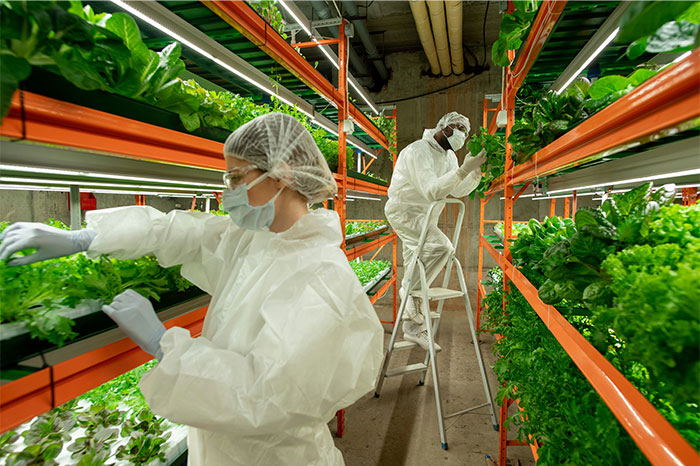
Image credits: baronvondoofie
#6
We're this 🤏 close to finding the cause auf multiple sclerosis and might therefore be able to soon have a remedy. This might also be a huge step forward in research on other diseases in which the bowel amd the central nervous system relate to each other.

Image credits: SadlyNotDannyDeVito
#7
Magnetic cooling is an emerging technology that uses the magnetocaloric effect to transfer heat, eliminating the need for compressors and harmful gases like CFCs and HFCs. It has the potential to be more energy-efficient—lab tests suggest up to 20–30% efficiency gains over traditional systems. While still in development, commercial applications could appear in the next 5–10 years. Replacing CFCs and HFCs would significantly reduce greenhouse gas emissions, as these refrigerants have global warming potentials thousands of times higher than CO₂.
Here's a video talking about this tech.
https://youtu.be/qcscUoP8FNk.

Image credits: xmu5jaxonflaxonwaxon
One of the ways in which Tetlock's superforecasters were different from the rest was that they seemed more immune to various biases.
An example of such biases is the so-called “scope insensitivity,” made famous by the Nobel prize-winning psychologist Daniel Kahneman. Imagine you have to predict how likely it is that Hungary's Viktor Orban remains in power for one more year. What seems like a reasonable forecast to you? Is there an 85% chance? 90%, maybe?
Now imagine that you’d been asked about two years instead of one. Would your answer have been any different? If not, you’re probably guilty of scope insensitivity, which is to say that you tend to give the same answers to questions that are superficially similar, but actually require quite different calculations.
Most people aren't very “scope sensitive,” but superforecasters are: they also seem less prone to other cognitive distortions such as confirmation bias and overconfidence, which allows them to make better predictions.
#8
Neuralink just implanted a successful chip into someone with ALS who's nonverbal. He's communicating now. So, in the next 10-15 years I think we're going to see a boom in communication with lots of people who are nonverbal. And I predict we're going to be able to cure or fix a lot of issues we could only guess about simply because the people suffering can't express what they're feeling or thinking.

Image credits: Ocean_Soapian
#9
Massive population decline in western countries. This will begin to seriously increase by around 2030. It will lead to massive geopolitical changes over the next 50 years. The Accidental Superpower is a great book on this topic.

Image credits: demeterscult
#10
We’re seeing the end of global capitalism as we know it. Multiple bubbles are about to burst in quick succession causing economic devastation on a level not seen since 1929.
Millions of millennials and Gen Zers are over leveraged on debt they have no way of paying back - not just student loan and credit card debt, but Klarna, Affirm, After Pay - these “buy now, pay later” schemes approve loans the same way banks approved mortgages in 2008, and its fully unregulated and untraceable.
Combine that with wealth inequality and the idiotic tariff wars Trump is starting and you’re looking at a total collapse of our current economic system in ten years at the latest.

Image credits: imnotwallaceshawn
In the end, Tetlock proved that prediction isn't a hopeless enterprise—some of the tournament's participants did considerably better than blind chance.
Think about a prediction with two possible outcomes, like who will win the Super Bowl. If you pick at random, you'll be wrong half the time. But the best forecasters were consistently able to cut that error rate by more than 50 percent. As Tetlock put it, "the best forecasters are hovering between the chimp and God."
Who knows, maybe some of the entries on this list will also prove to be Nostradamian.
#11
I think it will take longer than 10 to 15 years, but in the never ending source for cheap labor, the world will turn its attention to Africa. Huge population, very low wages, rich in natural resources and close to developed nations etc. The Chinese have been investing heavily in African infrastructure (Rails/Roads/Ports). You will see Africa become much more important on the global stage in the future.

Image credits: JBanks90
#12
As AI automation eliminates most high-paying jobs and the cost of food and urban real estate becomes unaffordable for most people, we will see a new back-to-nature movement. Turnkey fully-automated off-the-grid compounds in remote locations will explode in popularity. Micro-farming, water collection, and structure maintenance systems will be completely self-sustaining and will run entirely on integrated solar power. People will have much more free time and will get back to living social lives in small rural communities.

Image credits: bluegenera
#13
Not enough people are talking about climate change.
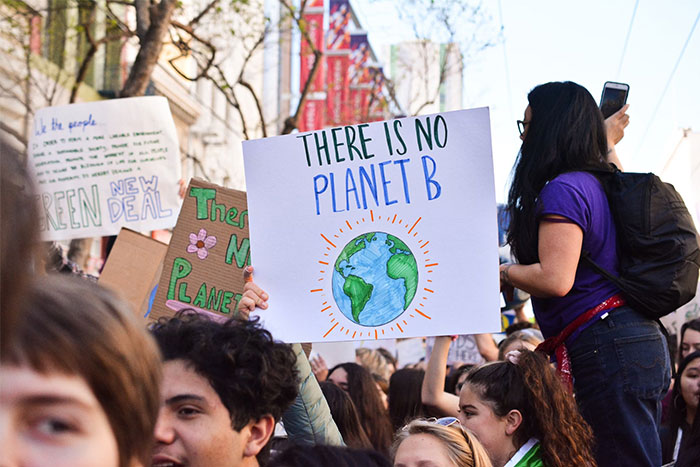
Image credits: Vorabay
#14
Algae based products will help cut down on plastic waste. They're already making edible water bottles using algae. Not to mention algae farming is going to revolutionize climate control.

Image credits: RefuseSea4624
#15
Millions of people will lose their jobs to AI, and we have no clear plan to replace what’s being lost.

Image credits: Colinmacus
#16
The application of deep machine learning to atomic simulations. Essentially we have had this program called density functional theory which can solve multi atomic quantum mechanic problems (uses approximations as without there literally isn’t enough time that has passed in the universe to solve even just 100 atom systems with current computers) with high enough accuracy to back out real materials properties with very high accuracy. The issue is that even a few thousand atoms becomes extremely expensive (talking weeks to months on a super computer), and a lot of practical use cases, like how doping in semiconductors leads to different electric properties, can require more like 100,000s of atoms to be realistically modeled. ML allow for fast enough simulations to go to millions of atoms to even hundreds of millions of atoms, allowing for even biological processes to be simulated on the atomic scale at near quantum mechanic accuracy.
This will revolutionize all materials R&D and lead to huge discoveries in many fields like computing hardware and d**g discovery. Microsoft, meta, ibm and others have all invested heavily in this area, developing huge atomic simulation datasets (if only we could get them to make them public). Some of the other answers put here like algae based products (really better plastic alternatives in general as algae will always have a throughput problem when considered on a global scale), nanotech and so on will all be heavily impacted by the ability to simulate these technology enabling materials on a computer in a high throughput manner and then go after only the most promising candidates in the lab.
Very biased though as this is literally one of the focuses on my PhD lol.
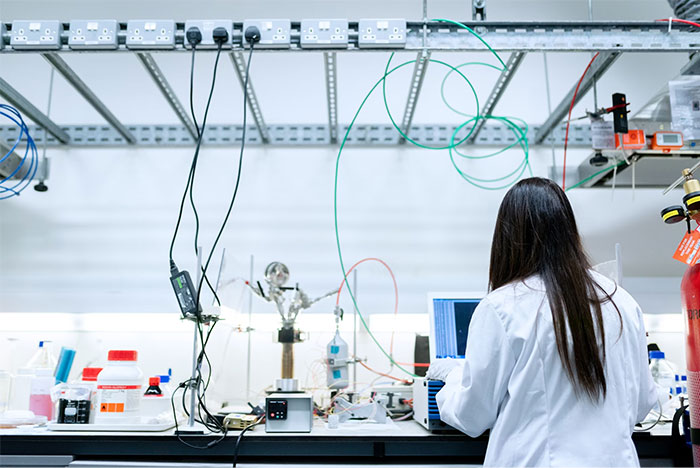
Image credits: Icy_Poetry_5339
#17
I think one is definitely autonomous cars. Future generations will look back at car crashes and won't be able to understand how dangerous they were.
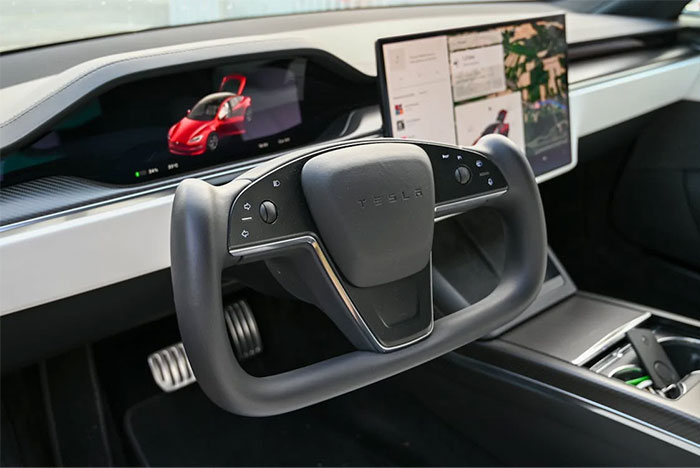
Image credits: AndyTexas
#18
In Western/developed countries, insufficient working age population. This is an imminent problem which will sharply affect the economies of major countries like S Korea, Japan, Italy.
The obvious answer is immigration but that's being handled very poorly in most places.

Image credits: Lord_of-the_files
#19
China as the dominant world power, AI making most jobs obsolete.

Image credits: esaks
#20
The collapse and restructuring of the world economy as we transition to a world where supply of and demand for workers diverges indefinitely.

Image credits: _mizzar
#21
2 main technologies I can see making huge leaps and if they take off they will change everything.
1) nuclear fusion energy generation. Test reactors have already been built and fired, china have sustained over 5 minutes so far and other nations are building test facilities. Safe, cheap, clean energy with minimal dangerous waste.
2) battery technology like graphene. Once battery technologies advance and the costs come down, I can see local power storage for renewable technologies, home power packs, EVs etc becoming much more cost effective. They would also be able to charge in half the time or less.
Put the 2 together and you have clean, cheap energy which can be stored for peak shaving, later use, cars and all sorts.

Image credits: Clunk234
#22
Molten salt thorium reactors.
However they will be in China and the only way we will get any for ourselves is if we buy them from China. We are so far behind on this technology that it would be a major effort to catch up. So sad as we had the ability to build test msr's in the 50's.

Image credits: roger_ramjett
#23
The legalization, decriminalization, and
destigmatization of our ancient medicines specifically Pscilocybin Mushrooms.
So less reliance on pharmaceuticals and a happier more connected populace.
Fingers crossed.

Image credits: Local_Temperature79
#24
AI scammers. They won’t sound like Indians and they’ll be able to target thousands of people simultaneously.

Image credits: ghdgdnfj
#25
Generic semaglutide. Once the patent expires and this d**g becomes cheaper it will be used more. This has shown to be a treatment for obesity and a*******n, as well as reducing risk of liver disease and neurodegenerative diseases.

Image credits: Cararacs
#26
Smart toilets that perform medical monitoring and tests on your excrements.

Image credits: Cmdr_Toucon
#27
Brain computer interfaces
In 15 years, we might think a thought and send a message, learn skills instantly, or back up out memories 🙂.

Image credits: Ur-PrettyPrincess
#28
The Artemis moon missions! The first planned moon walks since 1972, putting the first woman and first person of colour on the moon.
The missions are designed to explore the feasibility of putting a human base on the moon, to act as a mid way point for further exploration to Mars.
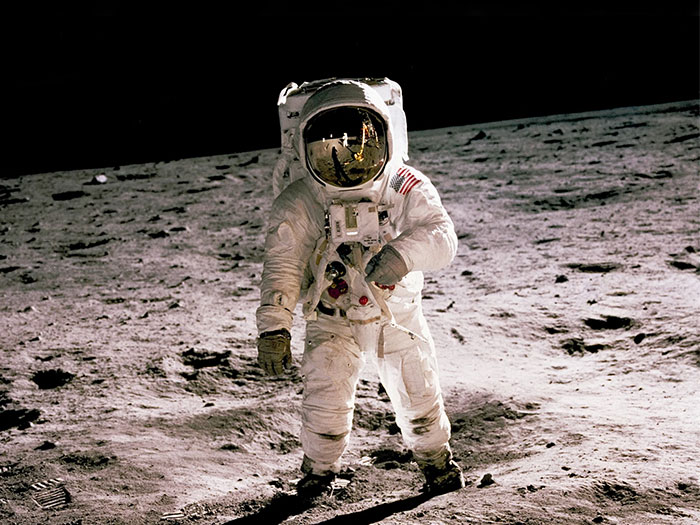
Image credits: Key-Collection2030
#29
Ai use cases have drastically shifted from technical help to emotional and personal support.
This is going to be so dangerous for generations born into these LLM companies being their best friend and confidant. If you think advertising is too "good" now, imagine telling your best friend that you're struggling with something and they start nudging you towards a product they couldn't have possibly used.
I'm not worried about SkyNet. I'm worried about people being able to interact in person. Socialization and social structure is literally how we conquered the planet.

Image credits: real_picklejuice
#30
The Bad: Food shortages due to climate change (unless we speed up vertical farming)
The Good: Nuclear Fusion reactions and Thorium salt reactors.

Image credits: notjustakorgsupporte
#31
In 1970, it was fine to get a degree, and your knowledge would be relevant until the moment you retired. This is changing and changing fast. The myth that a degree is something that guarantees you a job will soon become obvious, and the only thing employers will look for is the skill of self-learning.
This will make degrees even less relevant. Even now, people question whether they should pursue a degree or study on their own. In the future, this trend is expected to skyrocket, and we will see a generation of entirely self-taught people.

Image credits: Fine_Intention1240
#32
Perfect AI video generation on your phone. Generate a perfect video of anything your mind can come up with using prompts AND/OR you record a video of something with your camera then use prompts to alter it. Eg. you take a video of a car driving past then use say “make car start flying, do a flip, then catch fire”. Personal Hollywood studio in everyone’s pockets. There will be all kinds of pushback/copyright/protecting ‘truth’ issues/legislation etc in the early days but eventually the technology will mainstream to a point of massive cultural shift. It’s both scary and exciting.







